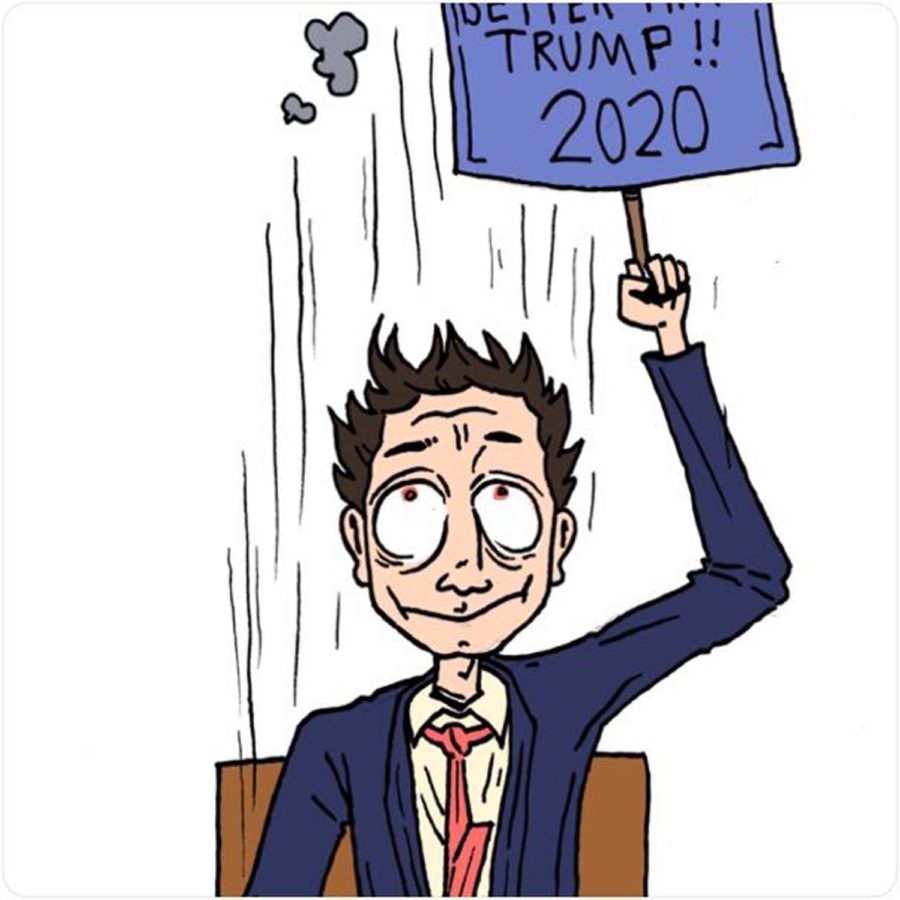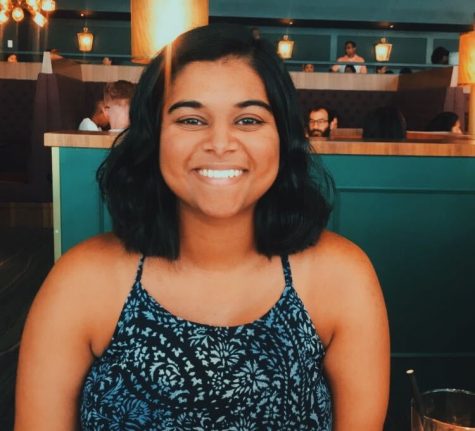Opinion | Candidates who didn’t qualify for the September debate need to drop out
September 9, 2019
For whoever needs to hear this, please end your presidential campaign.
There are way too many people running in the Democratic Primary. As of now there are still 20 candidates seeking the Democratic nomination, with six who have already left the race. More candidates need to drop out, not only to save themselves and the country some valuable time and money, but especially because we need some of them to run for Senate instead.
The Iowa caucus is still about five months away, and already people are starting to feel fatigued from the Democratic Primary. Some candidates, like former Maryland Congressman John Delaney, started announcing their run in July of 2017, more than two years ago. Even serious contenders for the nomination, like Elizabeth Warren, began announcing their run in December of 2018. This primary process has been long and drawn out, and the sheer number of candidates isn’t helping one bit.
By refusing to drop out, these candidates are “clogging up the system,” according to several Iowans. At the Iowa State Fair, the Washington Post conducted a survey where reporters showed Iowans pictures of all of the candidates, and asked if they could identify them. Participants were able to name some of the more well-known figures, but most other candidates caused more of a struggle — especially ones who didn’t even participate in the June or July debates.
“It needs to be cut down,” one Iowa resident told the Gazette. “There’s some people on the debate stage where it’s like, ‘Why are you wasting our time? Go away.”
The DNC has seemingly tried its best to at least cut down on the number of candidates on the debate stage by putting more difficult requirements in place for candidates to qualify for the September debates than for the June and July ones. In order to qualify for the September debate, candidates needed to have 130,000 unique donors to their campaign and reach at least 2% support in four separate polls. As a result, instead of 20 candidates and two nights of debates, the September debate is going to feature 10 candidates on one night. Some candidates who didn’t qualify decided to drop out of the race, knowing that not meeting the qualifications signalled that their campaign wasn’t going to gain enough momentum to send them to the White House.
“I think being able to have a voice on a debate stage, when other candidates have that, is really important,” Sen. Kirsten Gillibrand, D-N.Y., stated in an interview announcing the end of her campaign, “and without it, I just didn’t see our path.”
Other candidates unfortunately didn’t see things the same way and decided to criticize the DNC’s requirements instead of acknowledging this as a sign that their campaigns needed to end.
Tulsi Gabbard, a presidential candidate and congresswoman from Hawaii, went on Fox News and said the new qualifications “lacked transparency,” despite the fact that the qualification process was made public several months ago.
Instead of clinging to failing campaigns and blaming the process, the best service some of these candidates could do for this country would be to drop out of the race.
Delaney announced his campaign more than two years ago. Despite the fact that he’s been a candidate for so long, he can’t seem to crack more than 0-1% in the polls. In the first two debates, the most notable thing he did was act as a catalyst for other candidates’ viral moments, which is probably why he didn’t even come close to qualifying for the September debate. Despite this, Delaney refuses to drop out of the race, even though his own staff wants him to. He has been running an obsolete campaign for over two years now and it is long past time for him to hit the road and donate some of his money to another candidate.
Michael Bennet, the current senator of Colorado, may be a little too moderate, but at least seems to work hard to accomplish things by proposing bills that could gain bipartisan support. He’s just not gaining any traction with voters perhaps in part because he isn’t bringing anything new to the table. Joe Biden and Amy Klobuchar are more well-known moderates — which is unfortunately the only distinctive trait Bennet seems to have at all. He should drop out and focus on the other Senate seat in his state that’s up this year to help get another Democrat representing Colorado.
Marianne Williamson is another candidate that didn’t qualify for the September debates — but maybe she shouldn’t drop out. Obviously someone like Elizabeth Warren is a far better candidate in every traditional sense, but Williamson has the power of love. And crystals. And also orbs. Could anyone really underestimate those valuable tools in these dark times? Just kidding — Williamson is literally a candidate who should only keep running so that we can see Tina Fey come back to Saturday Night Live and absolutely slay an impression of her.
Wayne Messam, Tim Ryan, Bill de Blasio, Tom Steyer and Joe Sestak are candidates that most would struggle to point out in a lineup. Messam and Sestak haven’t qualified for any debates so far and should have dropped out a long time ago. Ryan, on the other hand, is similar to Delaney in that he hasn’t contributed anything to the debate stage beyond setting up standout moments for other candidates. De Blasio is the mayor of New York City and should focus on fixing the subway before he tries to fix the entire country, while Steyer is a billionaire who also hasn’t been on the debate stage yet. All five men should drop out of the race and focus on helping other candidates get elected to the Senate or throw their weight behind a more likely presidential candidate.
Steve Bullock is another candidate most wouldn’t be able to pick out of a line up. However, as a successful Montana governor, he’s what most would consider the best shot at picking up a Senate seat for the Democrats in his state in 2020.
It’s time for these candidates and their staff to think long and hard about why they’re doing this and where their campaign could possibly go from here. Instead of overwhelming the electorate by continuing to run, these candidates would best serve the country by pursuing other endeavors.









